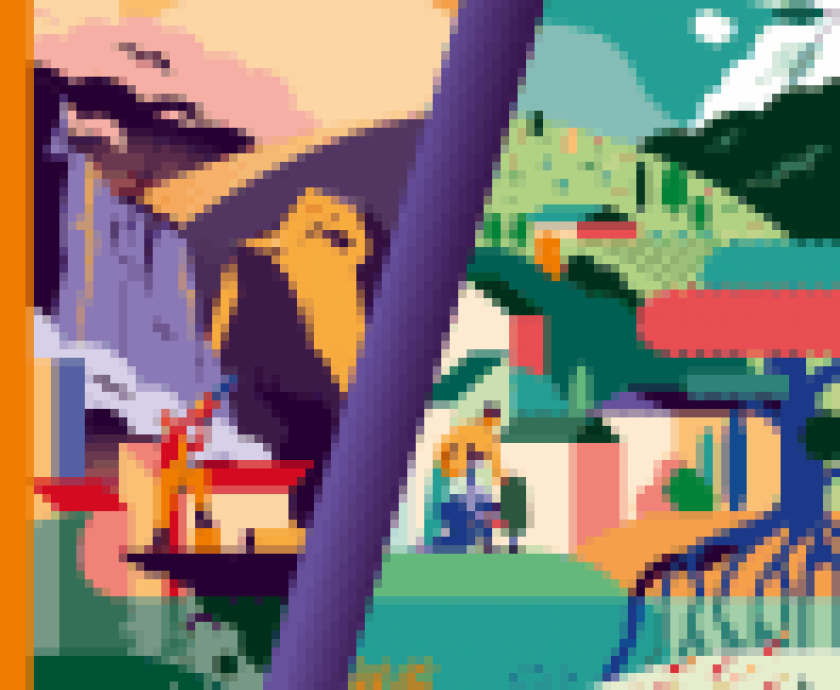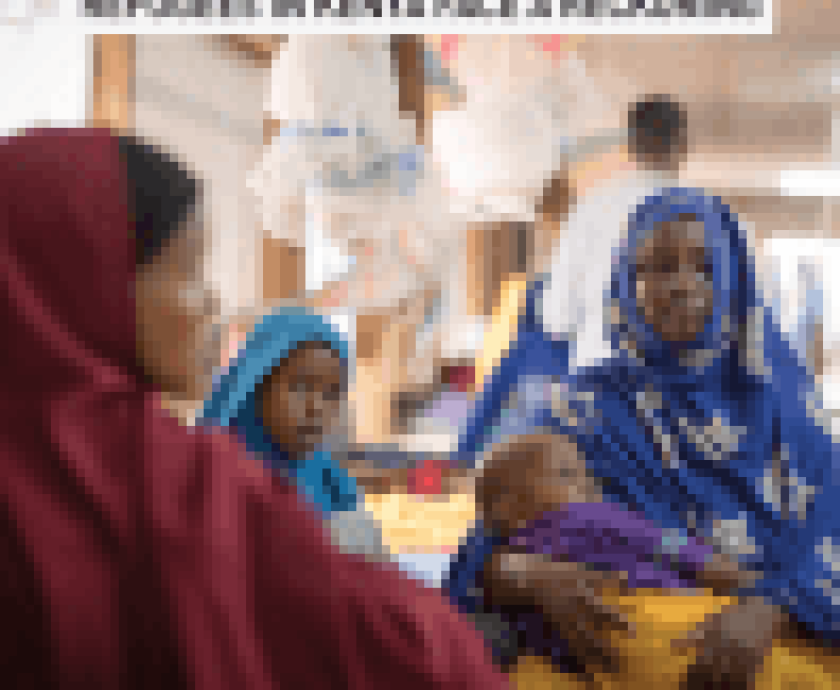Still frm the film Maxima.
(New York) – In recent history, there has rarely been a time when individuals around the world have united in a globally shared human experience such as we are living through now in the midst of the Covid-19 health crisis. Now more than ever, the world needs to hear powerful and uplifting stories of ordinary people who overcome adversity to demand justice, equality, and safety for themselves, their communities, and future generations. This is why, for the first time ever, the Human Rights Watch Film Festival (HRWFF) will present a digital edition of its full slate of provocative films that shine a light on the people taking great risks every day to stand up in the face of injustice and to protect our shared world for future generations.
Expanding its reach beyond New York City, the festival today announces the first eight films of the lineup that will enjoy their United States Digital Festival Premieres, making the films available nationwide. The full slate of films will be announced on May 14. In keeping with the festival’s longstanding tradition of contextualizing films with conversations, online screenings will feature in-depth discussions with filmmakers, film subjects, and Human Rights Watch researchers. In appreciation of the impact on cinemas and arts institutions nationwide due to Covid-19, Human Rights Watch Film Festival will continue to collaborate closely with its long-time cinema venue partners Film at Lincoln Center and IFC Center for the online 2020 edition of the festival. The festival plans to return to Film at Lincoln Center and IFC Center next year and beyond.
John Biaggi, director of the Human Rights Watch Film Festival states:
At this time when the world feels most intensely the interconnectedness of humanity, the festival was more determined than ever to showcase a full slate of essential films presenting urgent human rights issues we can all relate to. Now more than ever, human rights are global. What impacts one society, what impacts one family, affects all of us.
Dennis Lim, director of programming for Film at Lincoln Center and the New York Film Festival, states:
Film at Lincoln Center is proud to continue its long partnership with the Human Rights Watch Film Festival. This annual showcase has always reminded us of the power of cinema to make a difference, which makes this digital edition all the more essential in these challenging times.”
“IFC Center is honored to continue working with HRWFF as the festival adapts to our new reality. Their mission of providing a showcase for important and inspiring films remains as vital as ever,” said John Vanco, senior vice president and general manager of IFC Center.
This year’s festival brings to a national audience new cinematic works that expose and humanize crises related to the issues of criminal justice, reproductive rights, privacy, racial inequality, environmental rights, and freedom of the press which demand the world’s attention.
The festival is proud to present as the opening night film Erika Cohn’s Belly of the Beast, a powerful expose of human rights abuses of women in the criminal justice system.
The preliminary line up of US Digital Festival Premieres follows, with additional films to be announced in the coming weeks.
The 8th, Aideen Kane, Lucy Kennedy, Maeve O’Boyle, Ireland
Belly of the Beast, (Opening Night), Erika Cohn, US
Coded Bias, Shalini Kantayya, US/United Kingdom/China/South Africa
Down a Dark Stairwell, Ursula Liang, US
From Here, Christina Antonakos-Wallace, US
I Am Samuel, Peter Murimi, Kenya/Canada/UK/US
Maxima, Claudia Sparrow, US
Radio Silence, Juliana Fanjul, Switzerland/Mexico
Members of the media may request advanced press screeners by contacting:
Julia Pacetti, Verdant Communications, julia@jmpverdant.com
Download film stills here:
About the Films
Belly of the Beast (Opening Night)
Erika Cohn, US, 2020, documentary, 82 minutes, English
Shot over seven years, Belly of the Beast intimately chronicles the journey of women fighting reproductive injustice in their communities. Capturing an unfolding legal drama, the film centers around a team of tenacious heroines uncovering modern-day eugenic practices.
The 8th
Aideen Kane, Lucy Kennedy, Maeve O’Boyle, Ireland, 2020, documentary, 94 minutes, English
Following veteran campaigner Ailbhe Smyth as she navigates the complexities of convincing a historically conservative electorate to vote for women’s reproductive autonomy, The 8th tells the story of how Ireland overturned one of the world’s most restrictive laws on abortion. This documentary is a vivid exploration of the political and cultural history that charts the transformation of a country.
Coded Bias
Shalini Kantayya, US/UK/China/South Africa, 2020, documentary, 85 minutes, English
Following evidence that suggests artificial intelligence (AI) – from facial scanning to police surveillance – cannot be regarded as politically neutral, Coded Bias explores the intersection of AI and civil liberties. Director Shalini Kantayya illuminates our mass misconceptions about AI and emphasizes the urgent need for legislative protection from automated surveillance systems.
Down A Dark Stairwell
Ursula Liang, US, 2020, documentary, 83 minutes, English, Cantonese, and Mandarin with English subtitles
On a fall day in 2014, Peter Liang, a Chinese-American police officer, shot and killed an innocent, unarmed black man named Akai Gurley. Unfolding in the dark stairwell of a Brooklyn housing project, the shooting inflamed the residents of New York City and thrust two marginalized communities together into the uneven criminal justice system. Gurley’s death sparked cries of police brutality and a raging, anguished debate about racial bias in criminal prosecution of law enforcement officers.
From Here
Christina Antonakos-Wallace, US, 2020, documentary, 89 minutes, English, German, Spanish, Punjabi, Romani, Vietnamese with English subtitles
From Here is a hopeful story of artists and activists based in Berlin and New York whose lives hang in the balance of immigration and integration debates. Our protagonists move from their 20s into their 30s as they fight for citizenship, start families, and find room for creative expression. This sensitive and nuanced documentary captures their journeys to define what it means to “belong” in societies that are increasingly hostile to their existence.
I Am Samuel
Peter Murimi, Kenya/Canada/UK/US, 2020, documentary, 69 minutes, Swahili, English, Luhya with English subtitles
Filmed vérité style over five years, I Am Samuel is an intimate portrait of a Kenyan man torn between balancing duty to his family with his dreams for his future.
Maxima
Claudia Sparrow, US/Peru, 2019, documentary, 88 minutes, English, Spanish with English subtitles
Maxima tells the incredible story of 2016 environmental Goldman Prize winner Máxima Acuña and her family, who own a small, remote plot in the Peruvian highlands. Faced with intimidation, violence, and criminal prosecution, we follow Máxima’s tireless fight for justice, taking her from the Peruvian Supreme Court to the doors of the World Bank in Washington, DC.
Radio Silence
Juliana Fanjul, Switzerland/Mexico, 2019, documentary, 79 minutes, Spanish with English subtitles
To millions of people in Mexico, the incorruptible journalist and news anchor Carmen Aristegui is regarded as the trusted alternative voice to official government spin, fighting daily against deliberate disinformation spread through news sources, government corruption, and the related drugs trade. Facing threats of violence in the wake of a prominent journalist’s vicious murder, Carmen and her colleagues continue in a shared fight for democracy and justice.




